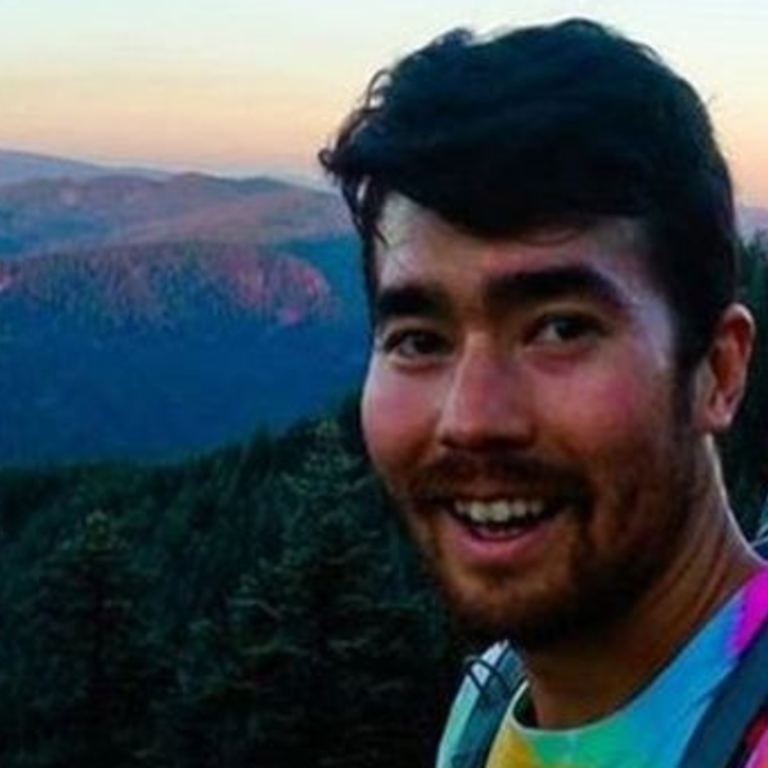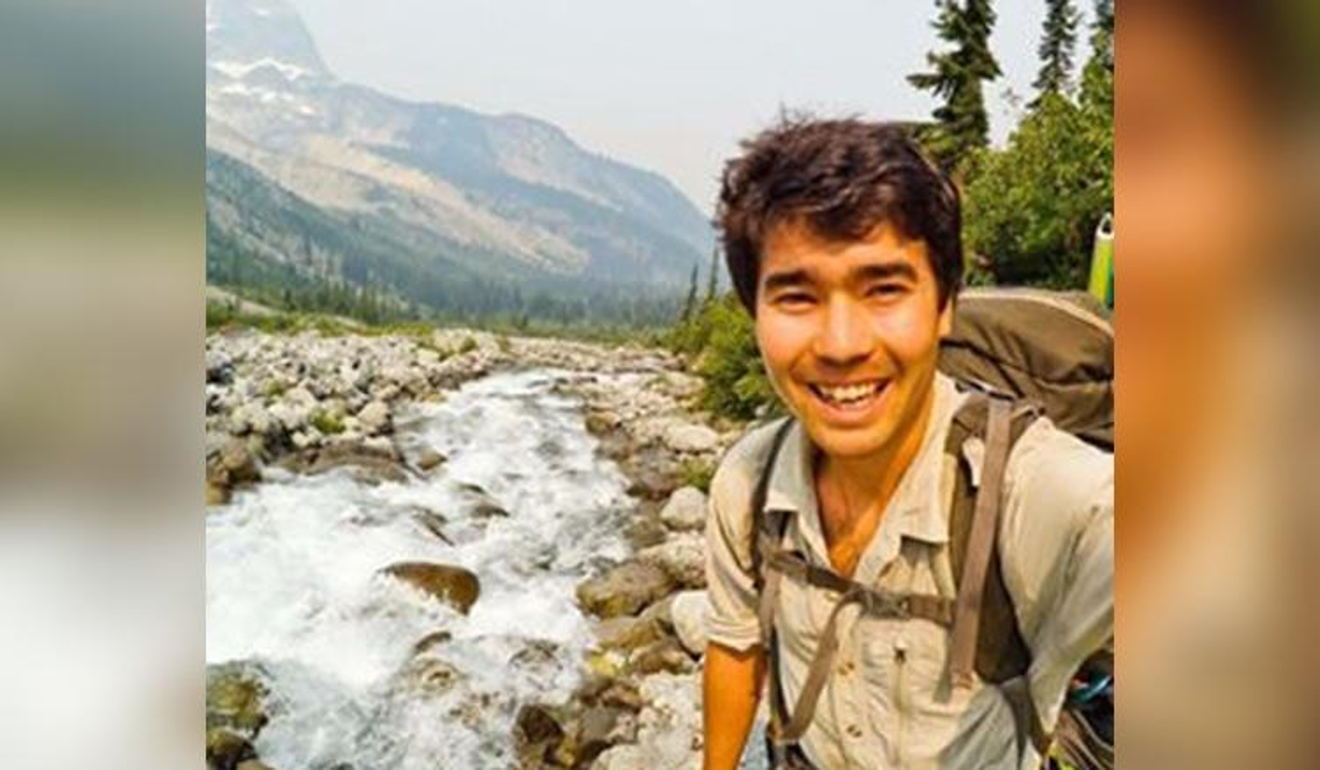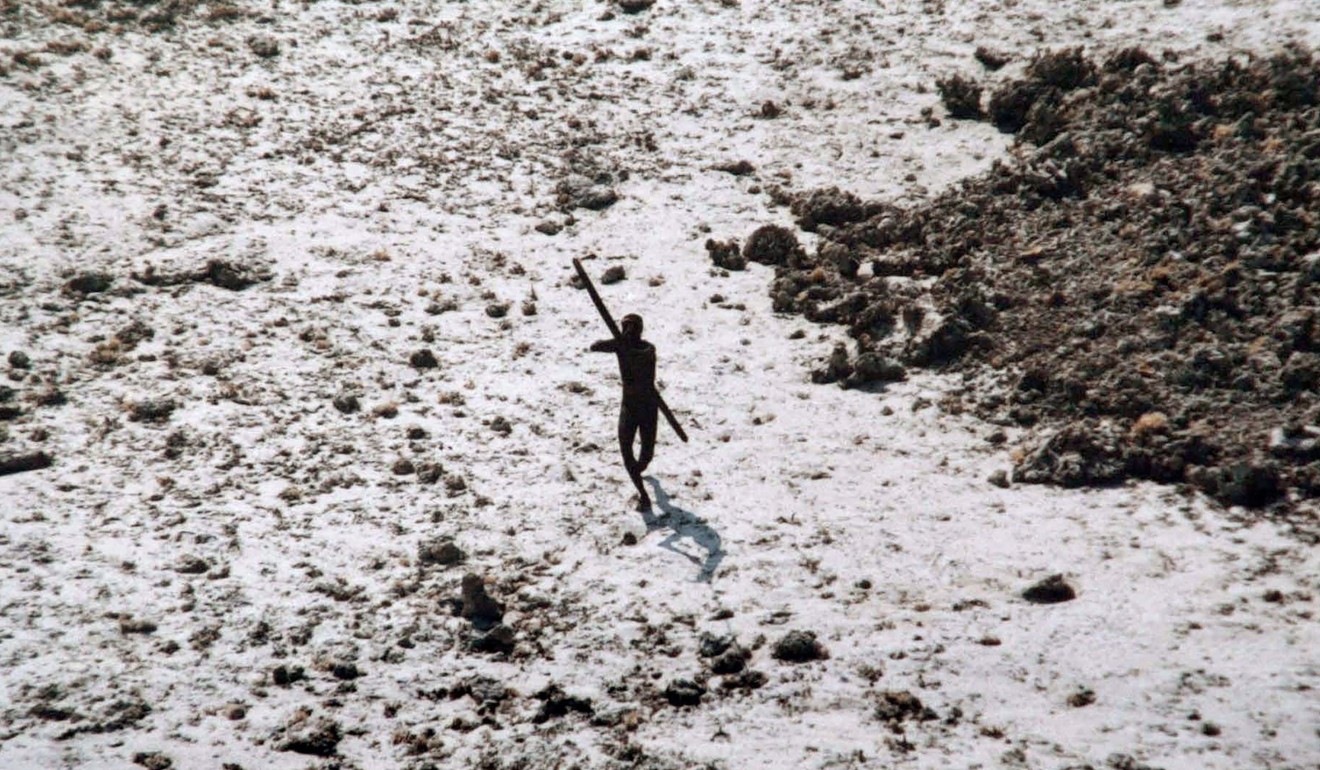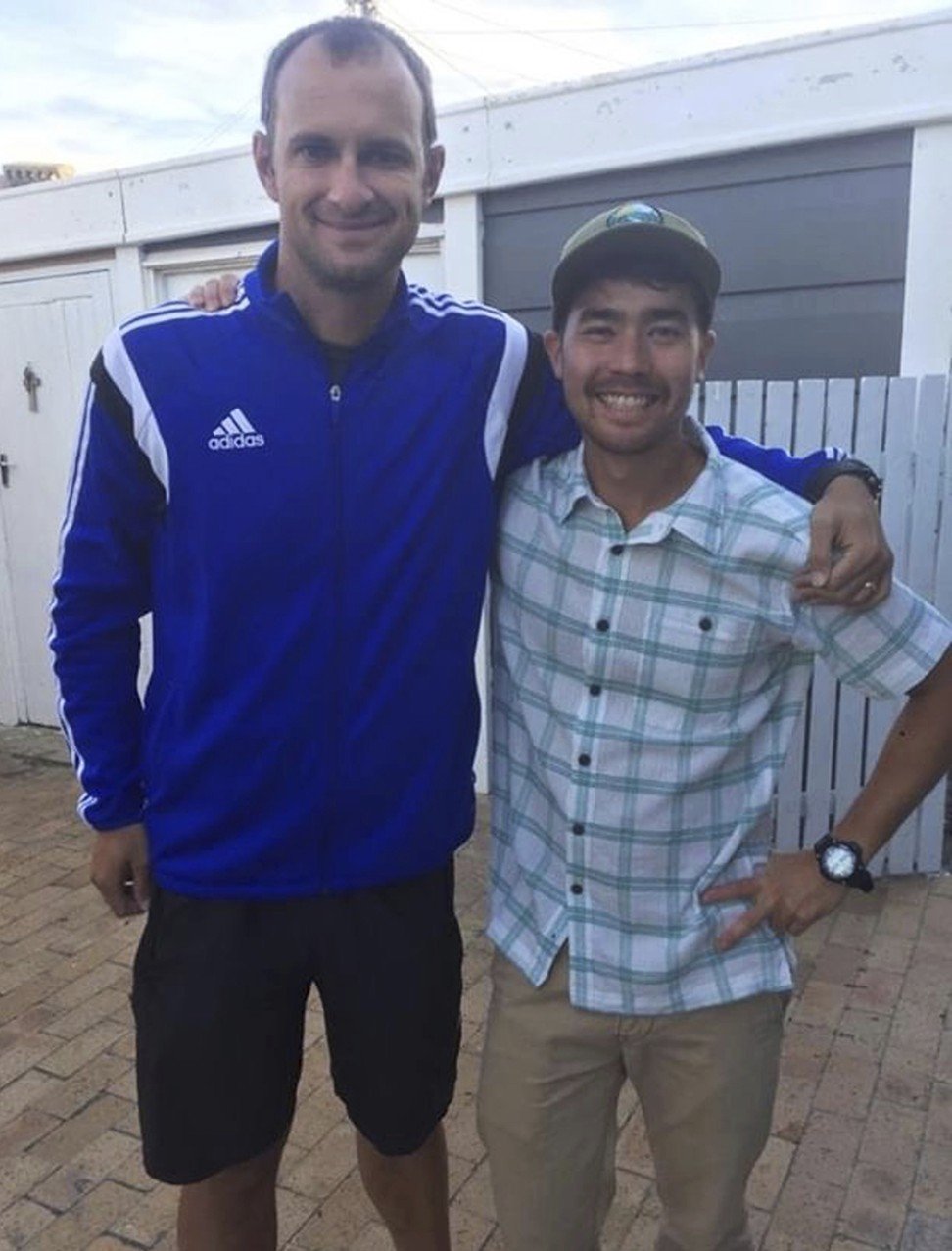
‘Satan’s last stronghold’: diary of John Allen Chau, US Christian killed by Stone Age Sentinel Island tribe, reveals his terror and sense of destiny
- The handwritten diary of missionary, provided by his mother, tells how he wept as he watched what he feared would be his last sunset
- But Chau believed ‘God Himself’ was guiding his illegal mission to take Christianity to the Sentinelese tribe, who shot him to death with arrows
The night before John Allen Chau returned for the last time to India’s remote North Sentinel Island, he struggled with a sense of fear that his death might be imminent.
“I’m scared,” wrote the 26-year-old American from Washington state, who had travelled to the island on a clandestine mission to convert its inhabitants to Christianity. “Watching the sunset and it’s beautiful – crying a bit … wondering if it will be the last sunset I see.”
His initial contacts with the Sentinelese, a tiny tribe of hunter-gatherers who reject contact with the outside world, had not gone well. One teenager shot an arrow at him, which pierced his waterproof Bible.
Yet Chau decided to return to the island and try again, galvanised by the feeling that he was God’s instrument.
Indian police puzzle over how to retrieve Chau’s body from restricted island
“Lord, is this island Satan’s last stronghold where none have heard or even had the chance to hear your name?” he wrote in a diary of his last days provided to The Washington Post by his mother.

He left the 13 pages, written in pen and pencil, with the fishermen who had taken him to the island. The morning after Chau’s final trip to the island’s shores, the fishermen saw his body being dragged and buried in the sand.
Chau spent summers alone in a California cabin as a wilderness emergency responder, led backpacking expeditions in the Northwest’s Cascade Mountains, almost lost his leg to a rattlesnake bite, and coached soccer for poor children in Iraq and South Africa.

But kayaking to a remote Indian island, home to a Stone Age tribe known for attacking outsiders, proved an adventure too far.
Police said on Wednesday that he had been killed with arrows, and authorities were working with anthropologists to try to recover his body from North Sentinel, in the Andaman Islands.
“Words cannot express the sadness we have experienced about this report,” his family said in a statement posted on his Instagram account.
Lord, is this island Satan’s last stronghold where none have heard or even had the chance to hear your name?
“He loved God, life, helping those in need, and had nothing but love for the Sentinelese people.”
Visits to the island are heavily restricted. Police arrested seven people accused of helping him reach it, and Chau’s family pleaded for their release, saying he acted “on his own free will”.
Chau’s diary reveals a portrait of a young man obsessed with the idea of taking Christianity to the Sentinelese, who number in the dozens and have lived largely without contact from the outside world for centuries, protected from visitors by Indian law.
It also shows Chau knew his mission was illegal. He wrote of manoeuvring to avoid the Indian authorities who patrol the waters near North Sentinel Island.
‘Why are they so angry’: US man John Chau killed by remote tribe while trying to convert them
“God Himself was hiding us from the Coast Guard and many patrols,” he stated in a description of the boat journey.
He had told no one about his plan to hire local fishermen to take him to the tribal area because “he did not want to put others of his friends at risk,” one of his associates, Bobby Parks, wrote to his mother after his death, according to an email she shared.
I think I could be more useful alive … but to you, God, I give all the glory of whatever happens
After paddling in a kayak to the island, Chau tried to engage the inhabitants by offering gifts of fish, scissors and safety pins and singing “worship songs.” A section of his diary is devoted to his impressions of the Sentinelese: He jotted down details of their language – “lots of high-pitched sounds” – and gestures.
Towards the end of the journal, Chau wondered whether he should abandon his quest or return to the island and risk the consequences.
“I think I could be more useful alive … but to you, God, I give all the glory of whatever happens,” Chau wrote. He asked God to forgive “any of the people on this island who try to kill me, and especially if they succeed”.
Chau was from southwestern Washington state, where he attended Vancouver Christian High School.
He went on to graduate from Oral Roberts University, a Christian college in Oklahoma, in 2014, with a degree in health and exercise science. While there, he worked with the university’s missions and outreach department.
Chau also worked with a charity, More Than a Game, a soccer programme for disadvantaged children, including refugees. Chau travelled to the Kurdistan region of northern Iraq in 2014 to work with Syrian and Iraqi refugee youth, Parks said, and he worked with Burmese refugee children in Tulsa, Oklahoma, for several years.

“I have never known a more courageous, selfless, compassionate man and friend,” said Bobby Parks, the former director of Oral Roberts University’s outreach department. “John lived and gave his life to share the love of Jesus with everyone.”
Others took a different position on Chau’s fateful decision to try to convert the Sentinelese tribe to Christianity. It was “a foolish adventure”, said P.C. Joshi, an anthropology professor at Delhi University who has studied the islands. “He invited that aggression.”
He admitted the visit also risked the lives of islanders who have little resistance to many diseases. “A simple thing like flu can kill them,” he said.
On Father’s Day last year, Chau noted on Instagram that his father came to the US as a refugee during China’s Cultural Revolution. He also documented his extensive travels, posting photos of climbing the peaks of the Cascade Range, scuba diving on previous trips to the Andaman Islands and fishing in Southern California.
One of Chau’s friends, Casey Prince, 39, of Cape Town, South Africa, met the adventurer five years ago, when Chau travelled with members of the Oral Roberts soccer team to volunteer at a soccer development and social leadership programme that Prince founded, Ubuntu Football Academy.
Since then, Chau had been back to visit Prince and his family or tutor and coach boys in the programme about four times. Most recently, he was there from mid-September to mid-October, Prince said.
Prince described Chau as easy to like, kind, joyful and driven by twin passions: a love of the outdoors and fervent Christianity.
“He was an explorer at heart,” Prince said. “He loved creation and being out in it, I think having probably found and connected with God that way, and deeply so.”
Prince declined to discuss what Chau had told him about his plans for travelling in India or the islands, saying he wanted to focus on Chau’s legacy. But he said Chau accepted the dangers that came with his adventures.
“If he was taking a risk, he was very aware of it,” Prince said.
In a Q&A for the wilderness adventure website the Outbound Collective, Chau said he first fell in love with the outdoors as a child, when he read books like Robinson Crusoe and The Sign of the Beaver, a tale of a white boy who befriends a Native American boy after being abandoned in a cabin in 18th century Maine.
The latter book “inspired my brother and I to paint our faces with wild blackberry juice and tramp through our backyard with bows and spears we created from sticks”, Chau said. “Since then, the outdoors have been my home.”
Despite top court’s blessing, Indian women still can’t enter this Hindu temple
Alex Burgdorfer, who lives in Eugene, Oregon, said he met Chau last year when the two went through a recertification course for first aid in the wilderness. The two hit it off because of their mutual interest in travel and hiking and had recently been trying to get together for a hiking trip in the Northwest.
“He was an inspiration for me,” he said. “His energy was pure. He gave you his full attention and his full thoughts.”
During the wilderness course, Burgdorfer recalled, Chau gave a short talk about treating snake bites in the wilderness, telling the group of his experience getting bitten by a rattlesnake and almost losing his leg.
It happened during one of the three seasons Chau lived alone in a cabin at Whiskeytown National Recreation Area in California, where he would be dispatched to wilderness emergencies.
Burgdorfer said Chau had been standing near a river when he was bitten on the left ankle. Chau’s Instagram feed displays his grotesquely swollen leg and says he spent several days in a hospital.
Chau had worked for the past two years leading backpacking trips to Mount Adams in southwest Washington state for incoming students at Reed College in Portland, Oregon, boss Will Symms said.
“He was always a great person to hang out and talk to,” Symms said. “He loved travelling and showing people the wonder of the things all around.”
Additional reporting by Reuters


